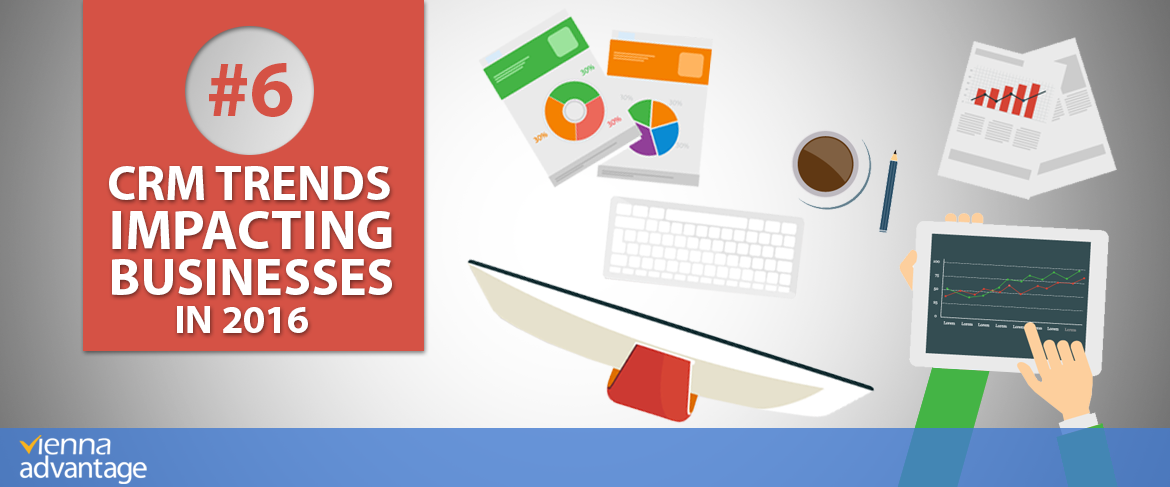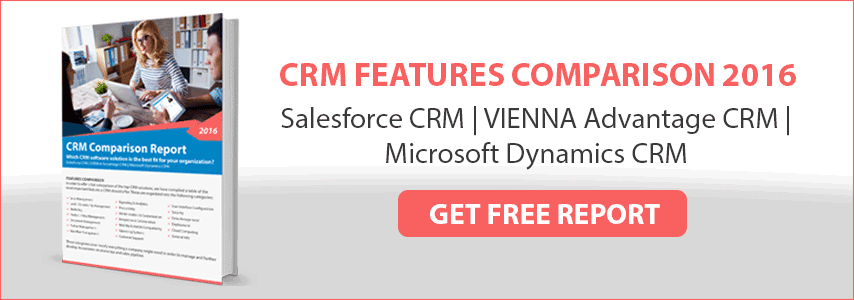
The worldwide CRM market grew 12.3% [in 2015], from $23.4B in 2014 to $26.3B in 2015. SaaS revenue grew 27% which is more than a double compared with the overall market growth in 2015. It is expected that by 2018, 62% of all CRM software applications will be cloud-based.
Although, the CRM market has long been prevailed by established vendors, the new players could shake up the CRM landscape.
Customer relationship management is an essential business tool for your organization. Being not able to keep up with all the data that has been created can be a serious disadvantage for your company. Especially when that data involves current or potential customers’ information that can affect your sales. Having this in mind, a good CRM software should automate your customer contact management system and sales process and provide useful insights on customer’s buying behavior.
If you are currently looking for a CRM solution for your business, take in consideration this six trends:
#1 CRM is rapidly moving to the cloud
An exponentially increasing number of small and mid-sized businesses are choosing SaaS-based cloud CRM solutions rather than legacy CRM systems. Their decision is based on the numerous advantages that cloud CRM solutions are offering. Some of the advantages are: this solutions are more agile, come with low upfront expenses, offer greater flexibility compared to old on-premise systems, as well as offer low maintenance cost.
While legacy CRM systems support business processes and data management, cloud CRM leverages the new market realities of social sales, increased support channels, leaner IT departments, better reporting and dashboards, etc.
#2 The Rise of Social and Mobile CRM
Public social networks (Facebook, LinkedIn, Twitter…) and private (CRM-connected) social collaboration tools are highly spreaded means of communication these days. The growing popularity of social media has made it important for businesses to study trends in order to understand the changing mindset of customers. Therefore, integration of social media and CRM applications is an important trend to follow these days. Social CRM can help your organization monitor customer reactions, generate leads, improve customer relationships and loyalty, and allow quick and timely customer service.

Mobile device market penetration is unstoppable, and CRM vendors are responding by moving to a “mobile first” development paradigm. Today accessing your customer relationship management solution from any mobile device, is a must have feature. You can now constantly stay in touch with your customers from any part of the world using mobile CRM software.
#3 Business owners are more educated about CRM in general
CRM purchases were once the responsibility of technical staff and IT managers. But today, an increasing number of business owners and CEOs are actively involving themselves in the CRM selection process. They are seeking features such as user friendly UI to ensure fast and seamless adoption across the company, whereas technology leaders assess CRM systems with a stronger emphasis on integration and IT architecture. This improves the odds of implementation success and increases agility.
#4 The Customer Experience
Though online commerce is convenient, customers are increasingly missing the human touch of brick and mortar establishments. This trend illustrates, once again, that businesses are looking for solutions to improve peer-to-peer relationships with their customers.
Delivering goods or services to end customers does not ends the transaction. Rather, it starts a long-term relationship that will ensure their loyalty and create scopes for up-selling and cross-selling opportunities. In 2016, businesses must have a solid CRM solution that will ensure constant customer experience improvements and increase the customer lifetime value (CLV).
#5 Data Governance in SaaS CRM
Organizations adopting SaaS solutions recognize that it is not only an alternative to traditional, on-premise solutions, but also that a completely new set of policies need to be devised for the unique characteristics of SaaS services.
The areas that demand attention are vendor selection, service level agreement, risk tolerance, data backup and disaster recovery, organizational skill and IT maturity, and cross-border data portability governance.
#6 CRM Integration
An increasing number of companies demand their CRMs to perform as a complete sales tool and therefore, vendors have integrated the marketing platform with the customer management application. A modern CRM solution should provide services like internal collaboration tools, email campaigns, loyalty programs and much more.
Today many organizations are choosing integrated ERP and CRM solution. While either product can work well on its own, their true potential is realized only when full ERP and CRM integration is achieved. If you want to learn more why implementing an integrated ERP and CRM is a great idea for your business, read this article: 9 Key benefits of ERP and CRM integration.
The CRM market is evolving rapidly with changing customer requirements. Failing to spot these trends could result in a loss of competitive advantages and suboptimal performance of your customer management application and your business.

